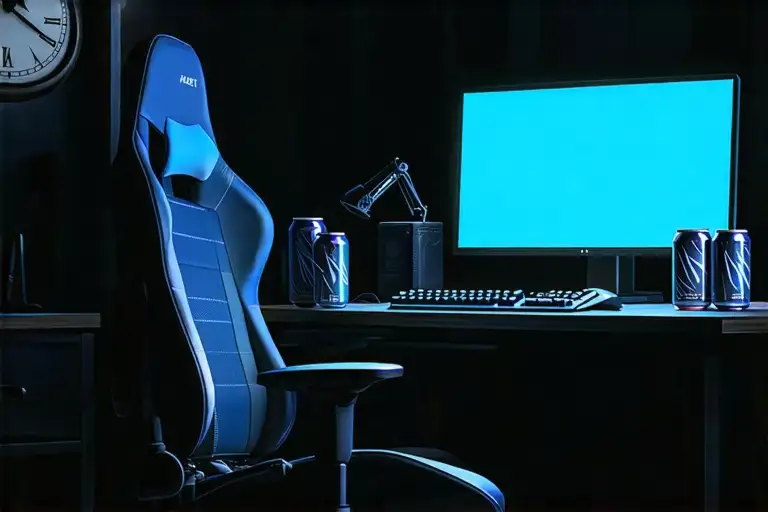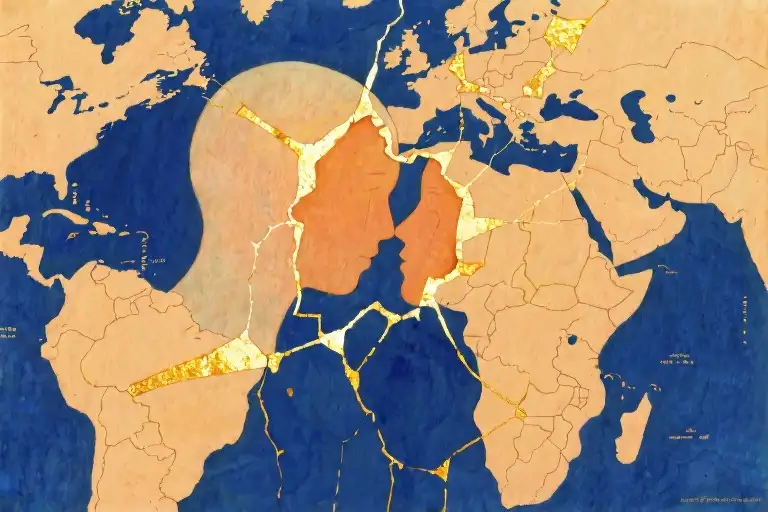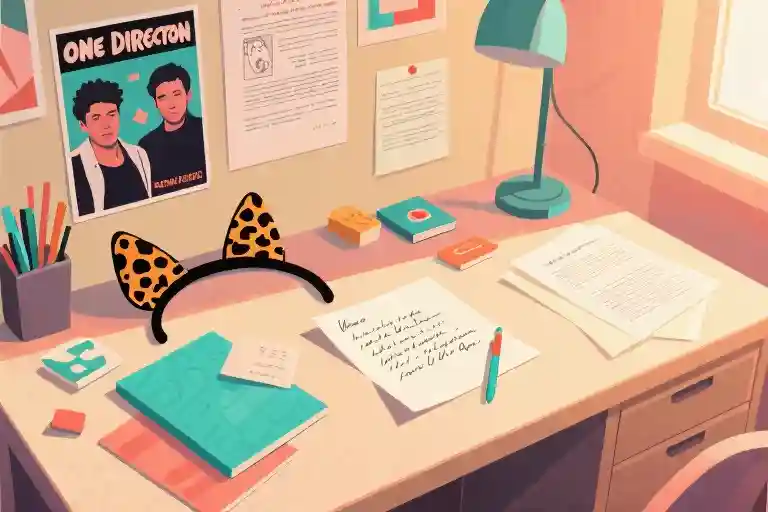The moment the final school bell rang, my backpack would already be slung over one shoulder in anticipation. By the time other kids were still gathering their notebooks, I’d be halfway home – not to study, not to socialize, but to answer the siren call of glowing screens. My afternoons followed the same ritual: sneakers kicked off by the door, a half-hearted wave to my parents, and the familiar hum of my gaming PC booting up before my bedroom door even closed behind me.
This wasn’t casual entertainment. The way some kids collected baseball cards or watched weekend cartoons – that was hobby territory. What I had was different. When teachers asked about extracurricular activities, I’d mumble something about ‘computer interests.’ At family gatherings where cousins talked about sports trophies or music recitals, I’d calculate how soon I could return to my latest Ranked grind in League of Legends. My obsession didn’t leave room for ordinary teenage experiences – first dates became obstacles between gaming sessions, summer jobs seemed like prison sentences cutting into playtime.
The worst part? I knew. Somewhere between another all-nighter playing Call of Duty and skipping a friend’s birthday party for an Age of Empires tournament, I understood this wasn’t normal. But the virtual worlds offered something reality couldn’t – instant gratification, clear progression systems, and most dangerously, the illusion of achievement. Where math tests and part-time jobs demanded gradual effort, games rewarded me with flashing ‘LEVEL UP!’ graphics and digital trophies for comparatively minor effort.
So, ostensibly, those ten…
The 10,000-Hour Gamer: My Lost Decade
The blue glow of my computer screen was my sunset. Every day after school, my backpack would hit the floor with a thud before I’d already be logging into League of Legends. Homework could wait—my team needed me for ranked matches. What started as casual fun in middle school became a full-blown obsession by high school.
The Descent Into Virtual Worlds
My gaming addiction followed a predictable yet destructive pattern:
- Weekdays: 4-6 hours nightly (skipping dinner for ‘just one more match’)
- Weekends: 12+ hour marathons, surviving on energy drinks and pizza rolls
- Priority Shift: Declined social invitations with excuses like ‘I’m busy’ while sitting in my gaming chair
The games changed—from Age of Empires strategy sessions to Call of Duty killstreaks to Minecraft building sprees—but the pattern remained. That rush of a pentakill in LoL or a victory royale in Fortnite became my dopamine currency.
The Turning Point
Three warning signs finally pierced my virtual bubble:
- Physical Toll: Wrist pain from 80+ APM (actions per minute) and chronic eye strain
- Social Consequences: Missing my best friend’s birthday party to maintain my Platinum rank
- Academic Wake-Up Call: Nearly failing chemistry because I’d practiced jungle routes instead of periodic tables
What stung most wasn’t the wasted time—it was realizing I’d become a spectator in my own life. While friends were learning to drive, going to concerts, or starting YouTube channels, I’d mastered fictional worlds while my real world gathered dust.
The Psychology Behind the Pixels
Looking back, gaming fulfilled psychological needs I didn’t know how to meet elsewhere:
- Achievement: Progress bars and ranked tiers gave measurable success missing from school
- Social Belonging: Online friends who praised my skills (unlike awkward school interactions)
- Control: In games, I could reset after failures—a luxury real life doesn’t allow
This isn’t to demonize video games. The problem wasn’t the games themselves, but how I used them as a full-time escape rather than a part-time hobby. That distinction makes all the difference between healthy enjoyment and video game addiction.
The Opportunity Cost
By college, I’d logged roughly:
- League of Legends: ~5,000 hours (equivalent to 208 full days)
- Call of Duty series: ~2,000 hours
- Minecraft & others: ~3,000 hours
When I first calculated these numbers, the reality hit harder than any boss fight. Those ten thousand hours could have been:
- Becoming fluent in 3 languages
- Earning a black belt and marathon medal
- Building a successful YouTube channel or small business
Yet here’s the crucial perspective shift: recognizing this wasn’t about guilt, but about empowerment. That painful awareness became fuel for change—and that’s the hope I want to pass on to anyone reading this while alt-tabbed from their own gaming session.
What 10,000 Hours Could Have Bought
That staggering number still haunts me—10,000 hours. To put it in perspective, that’s equivalent to:
| Activity | Time Equivalent | Real-World Milestone |
|---|---|---|
| Full-time job | 5 years (40hrs/week) | Career promotion to senior role |
| College education | 3 complete bachelor’s degrees | Fluency in 4-5 languages |
| Music practice | 90 minutes daily for 18 years | Professional orchestra-level violin mastery |
| Writing | 500 words daily for 13 years | 12 published novels |
The Mastery Math
The 10,000 hour rule (popularized by Malcolm Gladwell) suggests that’s the threshold for true expertise. While the exact number is debated, the principle holds: sustained deliberate practice creates mastery. My gaming hours could’ve been:
- Creative skills:
- Graphic design proficiency (Adobe Suite, Blender)
- Film-making competence (scriptwriting to editing)
- Physical achievements:
- Marathon qualifying times
- Black belt in martial arts
- Intellectual pursuits:
- PhD-level research in a chosen field
- Fluency in Mandarin and Spanish
Opportunity Cost in Pixels
Every League of Legends match (avg. 30 mins) represented:
- Half a chapter of a novel
- A beginner’s piano lesson
- A gym session burning 300 calories
Gaming’s dopamine feedback loops made progress feel tangible—level ups, loot drops, rank promotions. But outside my glowing monitor, nothing accumulated. No transferable skills, no enriched relationships, just a shrinking window of youthful potential.
A Thought Experiment
Ask yourself: “If I dedicated 20 hours weekly to __ instead of gaming, where would I be in 5 years?” That’s the power of time management for gamers. The same focus that conquers raid bosses could:
- Build a coding portfolio
- Start a profitable YouTube channel
- Train for Olympic weightlifting
The Silver Lining
Gaming did teach me valuable lessons about problem-solving and team coordination—but at what cost? The key is harnessing that engagement toward real-world growth. Tomorrow’s 10,000 hours starts with today’s choice: Will you spend it pixels or possibilities?
The Hidden Costs of Virtual Glory
The Social Void Behind the Screen
By my junior year, I noticed something unsettling. While my classmates were sharing stories about weekend camping trips or first part-time jobs, my most exciting anecdotes involved defeating pixelated bosses. The realization hit during a homecoming dance – standing awkwardly near the punch bowl, I discovered my thumbs could execute perfect League of Legends combos but couldn’t hold a conversation about anything beyond gaming.
This wasn’t just social awkwardness; it was relational atrophy. Research from the American Psychological Association shows that adolescents spending over 20 hours weekly on screens develop weaker nonverbal communication skills – the raised eyebrows, subtle vocal shifts, and posture changes that make up 93% of human connection. I’d become fluent in emojis but illiterate in face-to-face emotional cues.
The Identity Crisis of a Digital Native
The more achievements I unlocked in-game, the emptier I felt offline. My level 30 League account had clearer milestones than my real-life persona. Virtual me had:
- Defined roles (support/tank/DPS)
- Progress metrics (LP rankings, skins collected)
- Community status (clan leadership)
Meanwhile, actual me struggled to answer basic questions:
- “What are you passionate about?” (Uhh… games?)
- “Where do you see yourself in five years?” (Maybe… streaming?)
Psychologists call this ludic identity diffusion – when gaming personas overshadow authentic self-development. Unlike hobbies that expand your identity (sports, arts), compulsive gaming often contracts it into a single dimension.
The Opportunity Cost No Leaderboard Shows
My most painful realization? The skills I neglected:
| Virtual Skills Developed | Real-World Skills Missed |
|---|---|
| Quick finger reflexes | Handshake confidence |
| Map memorization | City navigation |
| Team coordination | Conflict resolution |
Gaming provided simulated challenges without real stakes. I could rage-quit a losing match, but couldn’t handle a B+ on a group project. The dopamine hits of instant gratification made slower, meaningful growth feel unbearable.
Breaking the Illusion
The turning point came when my little sister asked for help with her poetry homework. Staring at her notebook, I recognized a terrifying truth: my gaming expertise was useless to people I loved. That moment sparked three vital mindset shifts:
- Virtual mastery doesn’t transfer – No employer cares about your WoW raid stats
- Time invested ≠ value created – 10,000 hours gaming builds nothing tangible
- The only level that matters is your real-life character development
This isn’t about demonizing games, but recognizing their asymmetric ROI. Moderate play can teach teamwork and problem-solving, but compulsive consumption steals the very time needed to apply those lessons offline.
Your Next Move
If this resonates, try today’s reality check:
- List 3 non-gaming skills you wish you had
- Note which relationships need nurturing
- Calculate your last week’s gaming hours (be honest!)
The gap between those numbers reveals your starting point. Remember: every grandmaster was once a beginner – both in games and life. But only one arena offers lasting rewards.
Redeeming Your Time: A Practical Guide
For Teen Gamers: Turning Pixels Into Possibilities
The same strategic thinking that helped you climb ranks in League of Legends could make you an exceptional programmer. That Minecraft city you built block-by-block? It demonstrates architectural visualization skills most adults would envy. Here’s how to redirect that energy:
- Skill Translation
- MOBA players → Try coding (Python for logic, JavaScript for quick visual feedback)
- FPS enthusiasts → Explore video editing (Adobe Premiere) or 3D modeling (Blender)
- RPG lovers → Start creative writing on platforms like Wattpad
- The 20% Rule
Track your gaming time for a week, then replace just 20% of it with skill-building. Small wins create momentum:
- Monday/Wednesday: 1 hour gaming → 45 mins gaming + 15 mins freeCodeCamp
- Weekend: Replace one gaming session with a local maker workshop
- Join Hybrid Communities
Discord servers like Game Dev League blend gaming culture with professional development, easing the transition.
For Parents: The Bridge-Building Approach
Instead of “Stop wasting time,” try these conversation starters:
Phase 1: Observation
“I noticed you’re really good at managing resources in Age of Empires—have you thought about trying stock market simulations?”
(Planting seeds without confrontation)
Phase 2: Co-Play
Spend 30 minutes watching them game, then ask:
“What skills do you think pro gamers practice offline?”
(Helps them self-reflect on transferable skills)
Phase 3: Real-World Anchors
For every 5 hours gaming, require one activity from this menu:
- Interview a Twitch streamer about their business
- Design a game character using Canva
- Watch a GDC (Game Developers Conference) talk
Universal Tools: Your Time Reclamation Kit
1. The Switch Method
When the urge to game hits, do this sequence first:
- 5 mins: Stretching (physical reset)
- 10 mins: Duolingo (mental engagement)
- Then decide if you still want to game
2. Progress Tracking
Use a simple spreadsheet comparing:
| Week | Gaming Hours | New Skill Hours | Achievement |
|---|---|---|---|
| 1 | 15 | 3 | Built first Python calculator |
3. Environment Hacks
- Place controllers in a box labeled “Reward Station”
- Set desktop wallpaper to show your alternative skill goal
- Keep a sketchpad next to gaming setup for quick creativity shifts
Remember: You’re not quitting gaming—you’re expanding your identity. That 10,000 hours of focus proves you have extraordinary dedication. Now imagine directing that superpower toward something tangible. What will your next mastery be?
Time is Toothpaste, But the Next Tube is Yours to Squeeze
The most sobering realization about time isn’t that it’s limited—it’s that we can never truly account for how we’ve spent it until it’s gone. Those ten thousand hours I poured into gaming? They taught me reflexes, strategy, and how to tolerate toxic teammates. Valuable skills, perhaps, but not ones that translate well to resumes or dinner party conversations.
Yet here’s the liberating truth: while we can’t reclaim lost time, we control how we squeeze every drop from the tube moving forward. That’s why this isn’t a cautionary tale—it’s an invitation to rewrite your relationship with time.
The Redemption Equation
For every hour spent gaming:
- The Teenage Player could have practiced guitar chords (5,000 hours makes you concert-ready)
- The College Student might have learned Python (1,000 hours builds job-ready skills)
- The Parent could’ve cultivated mindfulness (100 hours shows measurable brain changes)
These aren’t hypotheticals. My friend Jake transformed his World of Warcraft leadership into project management certification. Sarah channeled her Sims architecture passion into interior design studies. The bridge between virtual and real-world skills exists—you just need to build it.
Your 10,000-Hour Crossroads
Consider this your personal time audit:
- Track your next 168 hours (one week) with apps like Toggl
- Categorize activities into: Essential / Enriching / Empty
- Replace just 20% of ‘Empty’ time with skill-building
That’s 3.5 extra hours weekly—enough to:
- Write a novel in 3 years
- Become conversational in Spanish in 8 months
- Build a coding portfolio in 6 months
The Ripple Effect of Reclaimed Time
When I reduced gaming from 20 to 5 weekly hours, unexpected benefits emerged:
- Physical: Better sleep from reduced blue light exposure
- Social: Real friendships replaced teammate acquaintances
- Cognitive: Reading replaced reaction time drills
The secret? I didn’t eliminate gaming—I demoted it from life’s main event to intermission entertainment.
Your Turn: The Time Alchemy Challenge
Here’s my parting question—not as judgment, but as kindling for your next chapter:
“If you could master one skill with 10,000 hours, what would make future-you proud?”
Write it down. Tape it to your monitor. Let that answer guide your next small time investment. Because while we can’t put the toothpaste back in the tube, we absolutely choose the flavor of the next one.
Discussion Prompt: Share your 10,000-hour skill choice below! For extra accountability, post your first 5-hour progress update this week.





